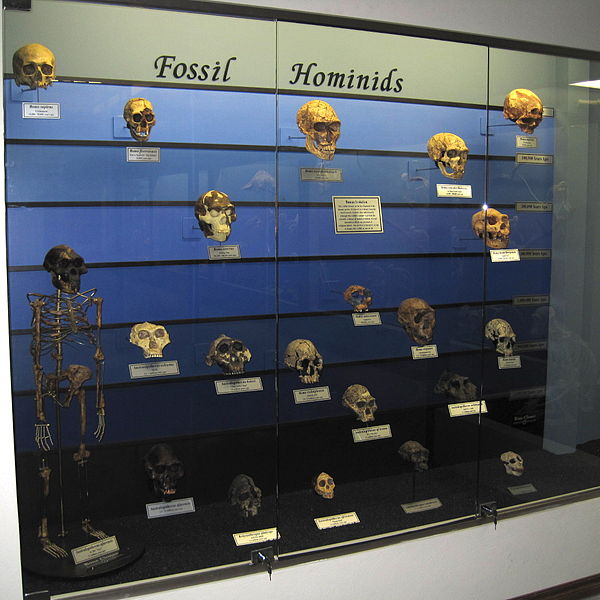The chimpanzee, also simply known as the chimp, is a species of great ape native to the forests and savannahs of tropical Africa. It has four confirmed subspecies and a fifth proposed one. When its close relative the bonobo was more commonly known as the pygmy chimpanzee, this species was often called the common chimpanzee or the robust chimpanzee. The chimpanzee and the bonobo are the only species in the genus Pan. Evidence from fossils and DNA sequencing shows that Pan is a sister taxon to the human lineage and is thus humans' closest living relative. The chimpanzee is covered in coarse black hair, but has a bare face, fingers, toes, palms of the hands, and soles of the feet. It is larger and more robust than the bonobo, weighing 40–70 kg (88–154 lb) for males and 27–50 kg (60–110 lb) for females and standing 150 cm.
Chimpanzee
Skeleton
Chimpanzee hand (left) compared to human hand
Overnight nest in a tree
The Hominidae, whose members are known as the great apes or hominids, are a taxonomic family of primates that includes eight extant species in four genera: Pongo ; Gorilla ; Pan ; and Homo, of which only modern humans remain.
Hominidae
Sumatran orangutan (Pongo abelii)
Humans are one of the four extant hominid genera.
A fossil hominid exhibit at The Museum of Osteology, Oklahoma City, Oklahoma








